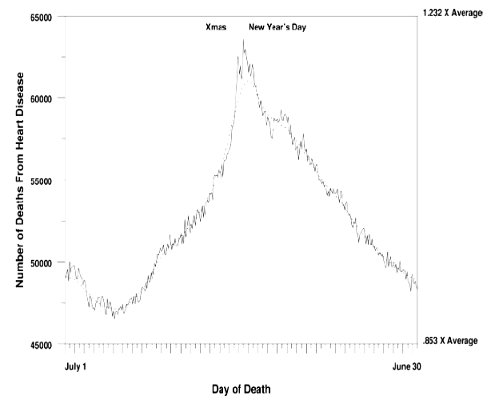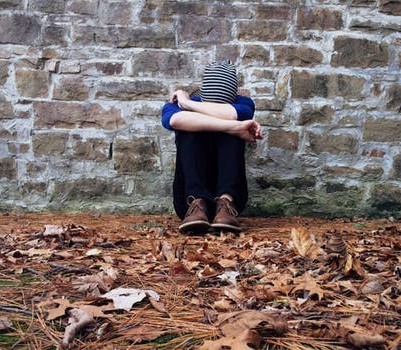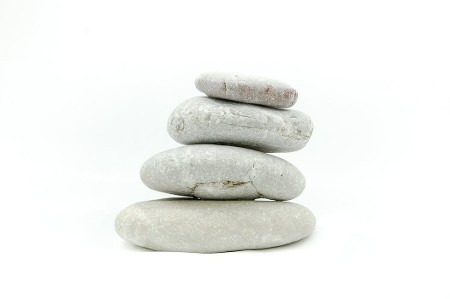Last Page Update 10/8/2018
Providing the Stress Management Support Your Deserve
Everyone has to deal with difficult people, whether they are argumentative, abusive, stubborn, or combative. The question is: how can you assert your rights without creating an unnecessary incident?
In most cases, angry people are screaming to be heard. They want to be valued, loved, and listened to. They want to feel important, but aren't able to express themselves constructively. With the right attitude, it's possible to get past these insecurities and reach an understanding. In this segment, we offer a range of approaches and tools to better assist you in managing your daily stress. Thank you for visiting this stress management segment.
Published First 11.08/2014
Holiday Stress
By; Dr. Ashraf Girgis N.D.
 |
I have written many articles and given many talks about holiday stress. Here, I would like to bring attention again to the importance of managing stress during the holidays. One of the most frequently asked questions by participants is: why holiday stress? Why is stress different during this time of year than at any other time? Here are some of the reasons.
Research published by Dr. Kloner in a respected journal of circulation in October 1999 indicated a higher number of deaths during the holiday season. Dr. Kloner was interested in looking at seasonal changes and their impact on patient mortality due to coronary artery disease in Los Angeles County, California, considering California’s climate is fairly mild without much of a cold season. Kloner looked at data on mortality rates from the preceding 12 years in a population of more than 220,000. He and his team concluded:
|
“Even in the mild climate of Los Angeles County, there are seasonal variations in the development of coronary artery death, with approximately 33% more deaths occurring in December and January than in June through September. Although cooler temperatures may play a role, other factors such as overindulgence or the stress of the holidays might also contribute to excess deaths during these peak times.”
Dr. Kolner’s research was based on the hypophysis that climate changes and weather patterns due to seasons have an impact at increases in vascular incidences, ischemic cardiovascular diseases, high blood pressure, and other factors leading to death.
|
 |
After closer inspection, Kolner and his researchers noticed that, in comparison to the rest of the year, the mortality rate is much higher starting from before Thanksgiving and continuing into Christmas and New Year’s. This is despite the temperature in Los Angeles remaining seemingly unchanged and not much colder. As a result of these findings and the static temperatures, the researchers concluded that the high mortality rate is possibly due to holidays. Dr. Kloner then published an article calling the findings “The “Merry Christmas Coronary” and “Happy New Year Heart Attack” Phenomenon.”
After Kloner’s study, another group of researchers under David P. Phillips tried to expand on this research. This time, they looked at all of the death certificates issued across the United States from January 1973 to January 2001. The researchers examined approximately 55,000 deaths a day during this time.
|
|

Figure 4. Daily US noncardiac deaths from natural causes, 1979–2001, for DOA/ED/outpatients. Solid line indicates the observed number of deaths for each day of the year, summed over the study period. Dotted regression line indicates the expected number of deaths for each day, given seasonal fluctuations and the null hypothesis that mortality is unaffected by the holidays.
indicates the observed number of deaths for each day of the year, summed over the study period. Dotted regression line indicates the expected number of deaths for each day, given seasonal fluctuations and the null hypothesis that mortality is unaffected by the holidays.
|
|
|
Philips’ group noticed an increase of 5% in mortality among Americans in December, during the holiday, and on January 1st, New Year’s. These peaks occurred regardless of climate pattern.
Scientists attributed these finding to several factors:
1. Most people who have some illnesses such as heart diseases, etc. throw caution out the window and may temporarily overlook their symptoms, leading to emergency visits to the hospital or even death on the way.
During the holidays, people also ignore their diet and eat more fatty foods, lots of sugar, etc. that can cause damage to their health. In addition, they ignore exercise and sleep deprivation and the many additional physical stresses placed on them.
Hospitals cut their staff to a bare minimum; this can contribute to higher mortality.
Last but not least, stress during the holidays can also be a huge factor in increasing deaths during this time.
|
 |
|
Suicide is also a major health problem in the United States. It remains the number 10 cause of death, indicating that 36,000 Americans are taking their own lives every year while more than 374,000 are treated in emergency rooms due to self-inflicting injuries. So, one can also attribute the increased mortality due to greater alcohol consumption, suicides, and car accidents happening during this time of year as a result of holidays, travel, and emotional issues.
|
|
Looking at this 5% increase in mortality across the United States, one can consider the holiday season a risk factor for health. As stated by Dr. Kloner, “current evidence seems sufficient to demonstrate that the Christmas/New Year’s holiday season is a risk factor for both cardiac and noncardiac mortality. Because this risk factor is growing with time, it seems particularly important to investigate it and control it.”
|
|

|
The most important suggestion for managing holiday stress is to look for its causes. Make sure to manage your stress during holidays by, above all, finding out what the main reason for your stress is. Write it down and then plan to deal with it accordingly. Here are some common causes of stress during holidays:
1. Loneliness.
If loneliness is the main reason for your holiday stress – due to divorce, loss of loved ones, or simply being away from family – holidays can be pretty painful, making you think about the past and thereby creating stress or forcing you relive a painful memory. But if you know that loneliness is the reason for your stress, you can plan ahead and find a solution. For example, try not to be alone during this time; plan ahead of time to invite your neighbors or coworkers so you don’t have to be by yourself. Be honest; express your feelings to friends or your therapist. Once you can point out the issue, it is easier to face it. You can accept the pain as part of life and try to make best of a very painful situation.
|
|
You can also volunteer in institutions such as hospitals, nursing homes, hospices, or many other organizations. Sometimes helping others in need makes us forget about our own pain and unhappiness. You can volunteer in religious organizations such as churches, mosques, synagogues, or other religious places. Being spiritual can ease the pain by believing in a bigger picture, or can help us to find our purpose in life. It helps us to get on with life despite its difficulties.
If, loneliness by itself is an issue, find out why. You can simply try to be in a crowded places such as hotels, etc. in order to feel less lonely. Whatever you like to do, make sure you plan it ahead of the holidays.
|
|
2. Finances.
If finances are an issue and you are feeling pressure to give gifts, look into places such as Salvation Army or Goodwill for secondhand used gifts. I find these places fascinating because often, not only are you saving money by buying from these types of stores, but the money you are paying is also used to help other people in need. This is a win-win situation which can make you feel less stressed due to the lack of money. Additionally, old newspapers or pieces of fabric can be used instead of wrapping paper for gifts. Be creative! My daughter is extremely conscious of the environment, so when she was younger, she would find wonderful ideas about how to wrap gifts. Instead of ribbons, she would find a small tree branch with few dry leaves in it and place it at the top of the gift. There are many other creative options.
|
|
Another way to escape buying any gifts at all is to give sentimental gifts instead of monetary. For example, you could volunteer to wash your older parents’ car, be their chauffeur for a day, or cook their favorite meal and serve them as if they are in a first class restaurant. Make it fun and special: write your gift idea on a nice paper, decorate it, and place it like an ordinary gift in a small box to make it special. Check the date beforehand so you know they are available. For many older parents, such gifts can be much more valuable than buying an ordinary gift which stays in a corner gathering dust. It is also good to recycle gifts: what you do not like can be someone else’s favorite, so give away gifts you don’t appreciate.
|
 |
|

|
3. Time.
If time is an issue, plan ahead of time and write down everything you need to do. Start shopping early. For many working professionals, especially women, the holidays mean lots of additional work, from holiday cards to parties to gift shopping to planning for trips. All these things are added to their daily workload of a full-time job, cooking, cleaning, carpooling, and taking care of family. This can be overwhelming, so planning, delegating, and cutting unimportant gatherings or gifts can be great step in decresing the stress level. Writing things down is crucial, as is getting ahead. My sister-in-law starts her Christmas shopping very early, right after Thanksgiving or even sometimes thought the rest of the year. Why not adopt this practice? Once you make a list of what you need to buy, the rest should be fairly easy. The same goes for sending greeting cards, putting up decorations, or organizing parties.
|
|
4. Relationships.
Relationships are like a double-edged sword. While we need them and enjoy having company, they can also sometimes be difficult, especially during the holidays. If you are going to spend time for several days with some family members and you know that you do not see eye to eye, it can be very stressful. The very first step to fixing this is again to write it down. Ask questions as to why you dislike this person: be honest about your feelings. Writing makes you think about situations, often making it easier to figure out a solution.
|
 |
|
If you are a guest for few days, try to avoid talking about issues that are contentious. Find time alone, even if only for few minutes, because having the noise of many people around you for few days can on its own cause stress. If you are unable to find a quiet place, go for a nice walk or a run.
If you are simply visiting for few hours or someone is visiting your family, try to organize games. This way, there will be no need for sensitive discussions.
If the issue is unmet or high expectations, try to come to terms with an understanding that the holidays are no different from any other time of year. If you have issues with your husband or wife, it won’t suddenly go away just because it is the holidays. Additionally, focus on the positive. If you realize your husband or wife is cheating and that they have a mistress, you can be proud that you don’t. That you are conducting a nice, clean, ethical life, while they conduct a double life by cheating and lying about it. Most cheaters say they don’t even care about the person they sleep or cheat with. I remember a client stating how he enjoyed cheating, despite the fact that he loves his wife. It was the excitement that was pulling him to cheat. So instead of focusing on the cheating, focus on family and everything that you are being blessed with.
|
|
Regardless of what is causing your stress, think about what the reason is that you are celebrating this holiday. Bring the attention and focus to the spiritual part of the holidays as opposed to materialistic parts of it.
No matter what you decide to do, please do not ignore your symptoms. Of course, holidays are not supposed to be stressful for everyone. According to an apa.org survey and findings, “The holidays are, first and foremost, a joyful time. During the holidays, people report many positive emotions such as happiness (78 percent), love (75 percent), and high spirits (60 percent).”
So please enjoy your holidays. But keep in mind that it is important to be careful and to use cation in all your activities, from travel to drinking to eating to exercise habits.
Happy holidays!
|
References:
|
|
Additional Articles
|
 Health: The Biology of Joy Health: The Biology of Joy
Read More
|

Research suggests marital stress can inflame lining of gut, allow bacteria into bloodstream
Read More
|

5 Steps in Lowering The Stress Of Politic
On Your health & Well Being
Read More
|
|
|
|

More Reasons to Meditate
Read More |

The Tell Tale Signs of Burnout ... Do You Have Them?
Read More
|
 Therapeutic effects of music Therapeutic effects of music
Read More
|
|
|
|
|